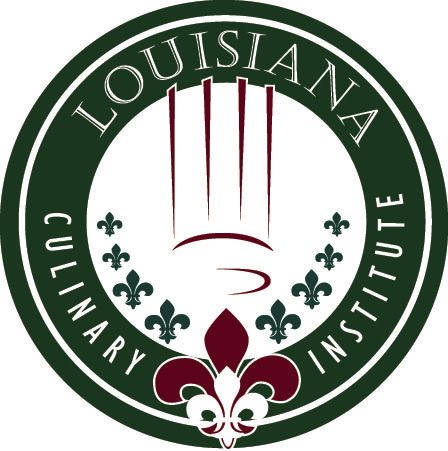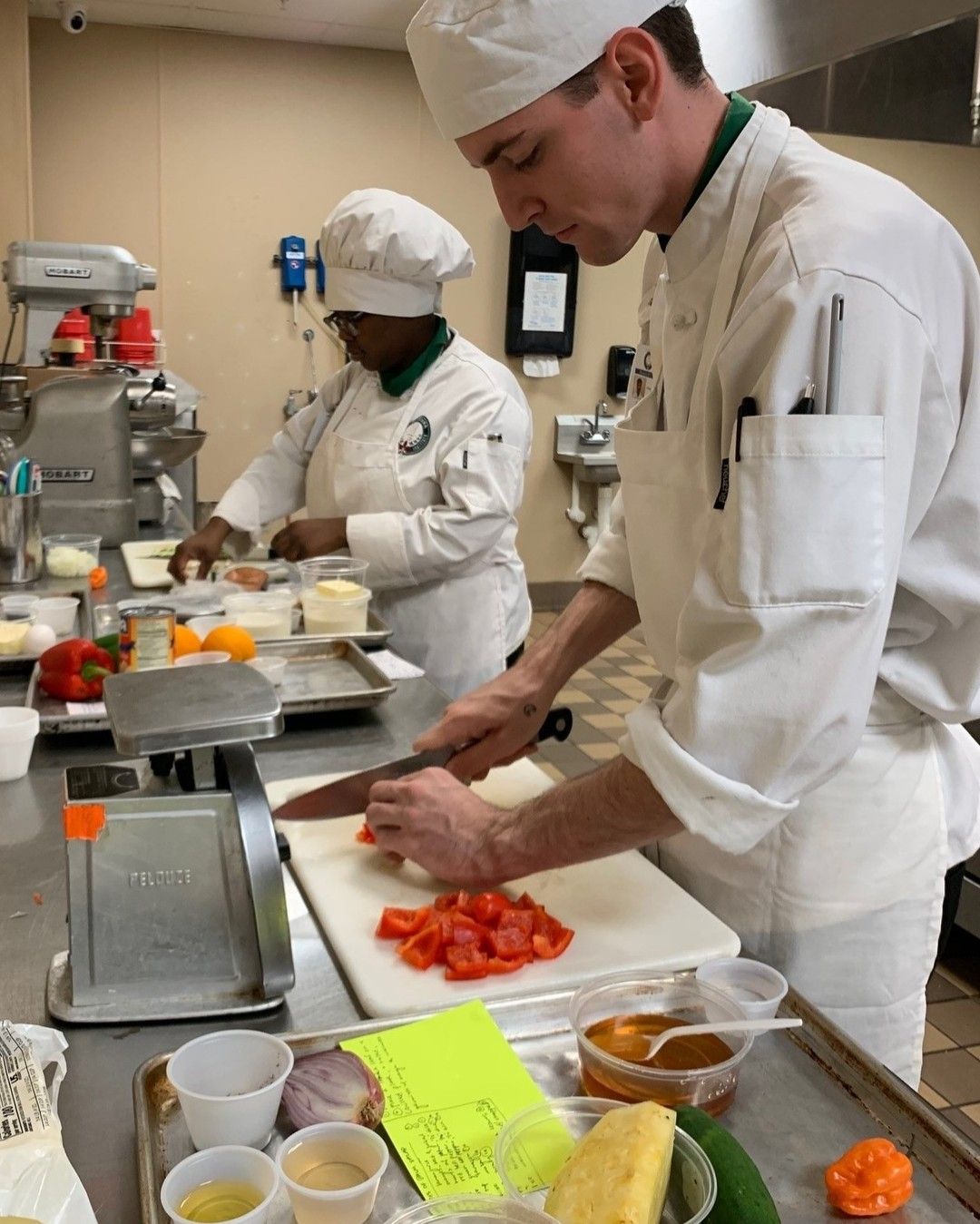Earning a Culinary Arts Degree: A Closer Look at Your First Baking & Pastry Semester
Charlie Ruffolo • Aug 06, 2020
The accelerated, 16-month culinary degree program is comprised of four semesters. Each semester builds on the skills and knowledge gained in your prior classes. While the ultimate goal is to master these techniques and strategies, it’s important to focus on the basics that establish the experience you’ll need in your career. Let’s take a closer look at your first semester in LCI’s baking and pastry degree
program.
APPLY
Your white level semester is composed of a combination of seven different classes. These courses cover everything from sanitation and safety to professional cooking classes in both lecture and laboratory settings. Here is what your first semester will look like at LCI.
CA 111 - ServeSafe® Food Safety and Sanitation
This class is designed to instruct the students in the basic principles of sanitation and sanitary requirements following HACCP program in receiving, storing, pre-preparation, cooking, and handling foods in a commercial grade kitchen. Special emphasis is placed to time, temperature control, cross-contamination, and personal hygiene. This is the National Restaurant Association Educational Foundation’s (NRAEF) nationally recognized ServSafe® Course and is a Core Credential for the NRAEF ManageFirst Program®. Students are eligible to take the NRAEF certification test upon completion of this course to obtain the ServeSafe® Sanitation Certification which is valid for five years. This course is 20 lecture clock hours and 2 semester credit hours.
CA 101 – Professional Cooking I
Professional Cooking I is an introduction to the history of French Classic Haute Cuisine. Students will learn the fundamentals of professional cooking techniques using moist and dry methods in a commercial food service facility. Students are also introduced to basic nutrition, taught how to incorporate proper nutrition into their dishes, the fundamentals of recipe writing and properly utilize commercial food equipment in a safe and sanitary manner. Pre-preparation techniques are covered with an emphasis on the proper use and handling of kitchen knives. This course is 30 lecture clock hours and 2 semester credit hours.
CA 121 – Restaurant Production and Service I
This course introduces students to the commercial kitchen and shows them how to use and work with the equipment and practice pre-preparation techniques for mise en place. Students are also taught how to prep food items for proper cooking and are shown the proper techniques for using all commercial kitchen equipment safely. The proper use of knives is demonstrated with ample time allowed for students to practice knife cutting techniques. This class is 30 lab clock hours and 1 semester credit hour.
CA 109 – Bread Basics
Bread basics teaches the bread production, including lean, rich, and laminated breads. This course includes the understanding of working with breads through study and manipulative skills. This class is 30 lab clock hours and 1 semester credit hour.
CA 102 – Professional Cooking II
CA 102 is an introduction to the use and production of stocks, sauces, and soups. The fundamentals of stock making are explored along with specific stock-making techniques and how to produce the five lead sauces using stocks produced as well as the fundamentals of making clear, thick, and national soups. This course is 60 lecture clock hours and 4 semester credit hours.
CA 103 – Professional Cooking III
In Professional Cooking III students will learn the basics of meat, poultry, and seafood cookery. Identifying primal cuts of beef, lamb, veal, and pork as well as the fabricated cuts from each will be taught. The proper handling and cooking of poultry, utilizing both dry and moist heat cooking methods with an emphasis on the correct procedure used for the “slow-roasting” of large birds will also be a key focus. This course is 60 lab clock hours and 2 semester credit hours.
CA 104 – Professional Cooking IV
In this course students will learn the basics of vegetable and starch cookery. Students will learn to identify, handle, process, and cook commonly used vegetables, starches, legumes, grains, and pasta, as well as how to control texture, flavor, color changes, and nutrient losses. The dynamics of vegetarian diets and planning nutritious vegetarian menus will also be taught. This course is 60 lecture clock hours and 4 semester credit hours.
OR
CA 110 – Introduction to Baking and Pastry
This course covers the fundamentals of a commercial kitchen bakeshop. Students will learn the fundamentals of bakeshop principles in relation to how they are applied in cakes, pastries, cookies, ice creams, sorbets, and pie production. This course is 60 lab clock hours and 2 semester credit hours.
MAT 101 – Essentials of Math
This course encompasses the basics of practical math
with a comprehensive introduction to the concepts and applications of mathematics. Skill building modules will prepare students with the skills and competencies needed to enter the workforce. This course is 45 lecture clock hours and 3 semester credit hours.
These classes will create your culinary foundation as you grow into your education and eventually your career.
Share
Tweet
Share
Mail


